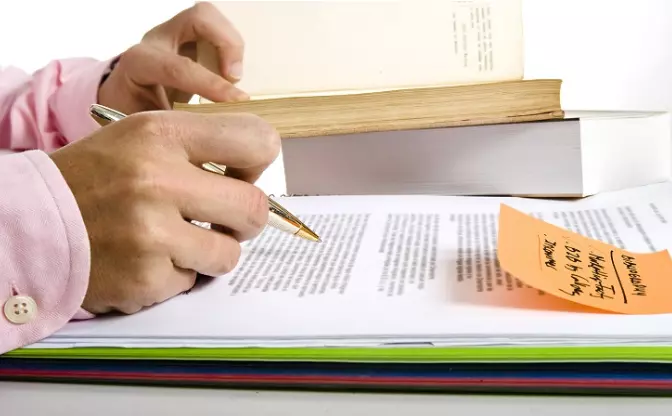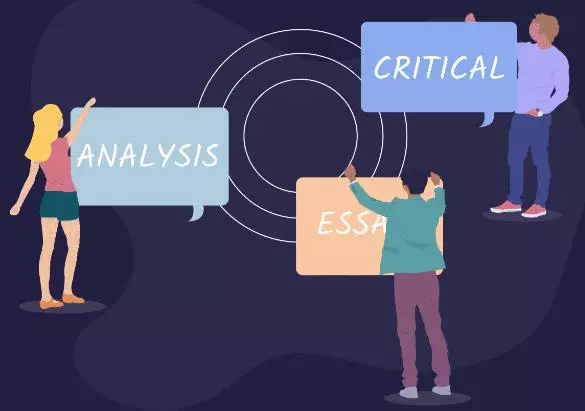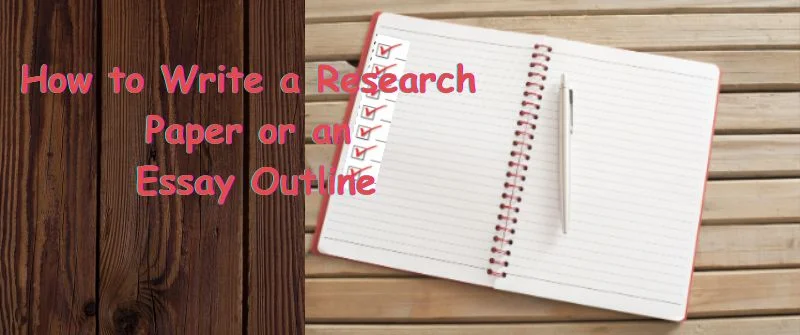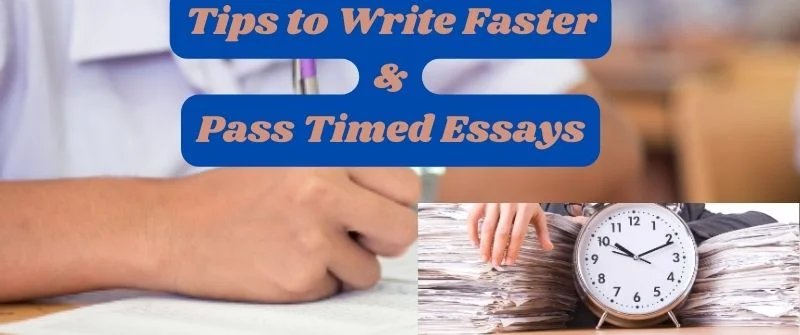How to be a Better Essay Writer: How I’ve grown as a writer

Every student knows academic essay writing is part and parcel of their studies. Therefore, it is a critical skill for one to pass. In this post, I will guide you on how to be a better essay writer by providing tips as well as explaining how I have become a better essay writer.
The challenge comes when you are used to writing essays regularly, and you do not want to duplicate the results of the essay that your professor gives positive feedback.
Below are tips gathered from some of our best essay writers for hire that we consult and engage to give the best writing services to customers.
Need Help with your Homework or Essays?
Tips on How to Become a Better Essay Writer
So, how do you elevate yourself from average to a better essay writer? Below are some helpful hints and approaches to make you a brilliant essay writer.
To be a better essay writer, you need to plan your writing using outlines, read widely to build vocabulary, and write more to practice it. This is what I did and how I have grown to be a better essay writer.
Let us explore these tips in detail.
1. Compile an Outline
It is crucial for every essay writer to know what they are going to include in their essay. This makes writing and researching much easier. Making a basic outline before you start writing your essay is the easiest way to narrow down a thesis and create an outstanding essay.
There are three main outlines of an academic essay:
- An introduction part, which includes the thesis statement,
- The body paragraphs – which discuss the evidence that supports your thesis,
- The conclusion that tries to connect your findings with the thesis statement.
When it comes to the body outline of any academic paper, the rule of thumb is always to include at least three concrete points that support your thesis statement.
2. Build your Vocabulary and Use it Right
An excellent vocabulary base allows you to express your ideas in a simple, clear, and concise manner. Preciseness, which means word economy, is a characteristic of great essays.
This is because most readers have no time to waste on length points that can be summarized in a few solid words.

With that said, one way of ensuring you communicate clearly and precisely is using vocabulary effectively and accurately.
An excellent essay writer always works hard to improve their vocabulary.
Besides, correct use of vocabulary displays your intelligence and ensures you are persuasive enough in your essays.
The main ways of improving vocabulary include reading extensively, using a thesaurus, and having your vocabulary book.
However, you should know that using big words can easily show overcompensating writing and sometimes deviate from the clarity of your argument.
3. Read Other Essays
Reading other people’s essays can help you improve your own essay-writing skills in the same way that the novel-read subconsciously helps mold your writing style. Reading essays written by your classmates and professors is a good starting point.
Take the time to read essays on a number of subjects. Various disciplines may employ a variety of arguments or styles.
The more essays you read, the more points and styles you get to apply to your own essay. When reading other people’s essays, have an open mind. Make a list of;
- The qualities you admire about them.
- What exactly is it about them that you find objectionable?
- What do you think their level of persuasion is?
- Is the argument well-balanced, with evidence supporting all points?
- Is there anything about the writer’s approach that you haven’t seen before?
4. Understand basic Grammar
If you want your work to be understood and considered seriously, you must use proper grammar, style, and punctuation. Make sure you understand the fundamentals of grammar before you begin writing an essay.
Subject-verb agreement, proper articles, pronoun usage, and well-formed sentence structures are all examples of grammar basics that you should be familiar with.
Try to use the most common punctuation marks, such as commas and periods, as well. Also, ensure you learn the usage of different punctuation marks to have a variety of ways of expressing your ideas.
Finally, academic essay writing is strongly reliant on voice. When writing, always use the active voice instead of the passive. Additionally, avoid clauses that do not add anything to your essay and words that deviate your argument from the main point.
5. Analyze Main Points and Evidence Critically
When writing an academic essay, you should always keep your main point in mind. If you get distracted by an interesting side note to your topic, your writing will become less concise.

Before using any evidence in your essay, ask yourself, does this directly support my thesis? If not, you should dismiss it.
Thorough and critical analysis is essential when evaluating evidence.
After all, you want to use the strongest and most reliable point to support your thesis.
Therefore, you should critically analyze everything you want to include to see if it has any connection to your topic.
6. Learn How to Write a Proper Conclusion
The conclusion is one of the most ignored aspects of academic essay writing. Your conclusion is the thread that connects all of your research to justify your thesis. Therefore, it should not be a repetition of your introduction or your argument.
A proper conclusion concisely summarizes the major information mentioned in the body of an article and connects it to the thesis to demonstrate how this evidence supports or refutes the research’s main point.
Many excellent academic essays have been produced only to be derailed by ambiguous, poorly phrased conclusions. Next time you write an essay, make sure it is properly crafted.
Get a Brilliant Essay today!
Let our essay writing experts help you get that A in your next essay. Place your order today, and you will enjoy the benefits.
How Have I Grown as a Writer?
While I consider myself a writer, there is no doubt that my writing has improved considerably over the years. The first thing that stands out in my writing is my creativity, flow of ideas, grammar, and editing skills.

When I first started writing, I was all over the place. I couldn’t really tell if I was writing well or not.
My grammar was awful, and my creativity was not so palatable.
After I took several classes and really started to work at it, I started to get a lot better.
I vividly remember before writing that first article, I had no idea what to write about.
I was discouraged by my inability to write a good sentence with correct spelling and grammar. But I kept pushing and learning.
In some instances, I could not even write my college essay, and I used to struggle to practice other types of essays. But I never gave up.
What helped me most is that I had a passion, some mentors to guide me, and some audience to give me feedback. The most important thing for me was knowing what I was doing wrong and what I could do to fix it.
I also found a few online resources that were extremely helpful, which helped me improve my writing. Now, I’m not completely confident about my writing, but it’s getting better, and I’m learning a lot.
After reading about the psychology behind writing, I started to break down my writing process and use that to create more effective writing. I’m also aware of using different voices as a writer.
For example, now I know when I am communicating with my peers vs. when I’m writing for an audience in a public forum such as this blog. I know when I am writing for people who want to improve their writing skills and when I am writing for an elite professor.
Also, my writing is different if I was having a conversation with someone versus writing a letter or email to someone. In either situation, I have learned the key is to say what I mean and leave any hidden meaning.
I have also come a long way since I stopped writing down my work in notebooks and typing on a computer. What used to take me a day to write now takes me an hour or two.
My typing has improved, too. I was able to type words well using double-spacing for essays so that I could prepare a presentable text.
Another writing growth I am really proud of is publishing my work online. Here, I have an audience who gives me reviews. Their comments give me pointers on how to improve my writing.
As I write more and research more, my work and general creativity continue to blossom. I am happy with where I am now since I can do writing for a living.
However, as a writer, I want to grow and learn more to become better because the field of writing is never finished. In fact, I am constantly learning new things about what I write and how to communicate better with my audience.

Josh Jasen or JJ as we fondly call him, is a senior academic editor at Grade Bees in charge of the writing department. When not managing complex essays and academic writing tasks, Josh is busy advising students on how to pass assignments. In his spare time, he loves playing football or walking with his dog around the park.




